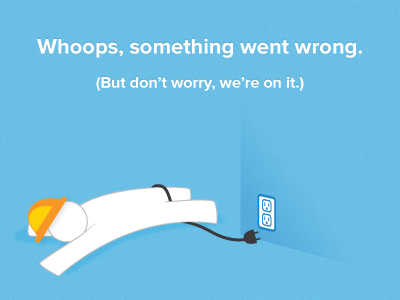Your reputation is the sum of perceptions and opinions people have of your brand, whether they are customers or not, however, every non-customer is a potential customer. Managing your online reputation properly has become more crucial than ever because of the exponential growth of the digital world. For a clearer picture, take a look at these statistics:
- 65% of internet users rely on online search results to provide reliable information about companies.
- 70% of recruiters in the US reject candidates based on their online data.
- 79% of consumers rate personal recommendations and online reviews the same.
- 85% of consumers check the web before making a purchase decision.
From the foregoing, it is clear that having a bad online reputation could affect your business negatively. Now, what have you been doing that could be hurting your reputation?
 Not looking yourself up
Not looking yourself up
Not googling your company every now and then is nothing short of negligent. You need to see how you rank in search results and what is associated with your company’s name. This could help you determine what to do to either remedy a bad situation or make a good one better. For instance, when you google your company, do you find good reviews? Good reviews are essential as customers will be more inclined to trust you when they see them. You should consider embracing a proactive online review strategy.
Being too forceful with marketing messages
If you saturate every tweet, Facebook post, or blog post with pushy marketing messages, chances are you’ll annoy your customers. In this piece by James Jorner, he notes, “not treating a user complaint appropriately, especially on social media, could result in a reputation crisis.” Online content should be about adding value and not taking every opportunity to try to badger customers into buying your product or service. Not only will they ignore you, they’ll badmouth you to potential customers and may switch to your competitors.
 You‘re not always online
You‘re not always online
In this post on protecting your online brand reputation, Umbrellar.com’s Aliesha Ellington and David Howden believe, “your online presence – from website to app to social media accounts – is the ultimate extension of your business. It’s your 24/7 sales person, an order taker, and a customer experience manager.” They couldn’t have said it better. Your website going offline even for a few minutes is a catastrophe, and not being reachable through your social media platforms at all times is just as bad.
Delaying responses to customer’s queries
Taking your time before replying customers’ queries or addressing complaints is a big no-no. Whether it’s because you’re not always online or because you’re not sure how to address a complaint, delaying before you reply customers is sure to damage your reputation. What you should do instead is reply immediately with an answer to their query, however, if it’s a complaint you’re not sure how to address, start with an acknowledgement and then ask questions to learn more. This way, you’ll be buying time to find solutions to the problem, and if you’re unable to solve it, make it clear you did your best and apologise for any inconvenience caused. Remember, you’re trying to create a relationship with your customers.
 Not monitoring mentions
Not monitoring mentions
Do you relax when you get no mentions or messages from customers complaining about your product or service? You might think this means you’re doing well, however, this may not necessarily be the case. If you’re getting neither good nor bad comments, it could mean you’re not being noticed. It could also mean you’re not looking. It’s a good idea to frequently check forums and other online spaces for discussions about your product or service. You’ll likely find valuable insights into your company’s reputation.
Not updating your website
Having a website with poor content is a sure way to discredit yourself. Customers who check the website could be put off and may lose any respect they had for you. Your website is like your office space in the digital world – it has to be inviting. Ensure you keep your content information, landing pages, and product or service offerings up to date.
 Ignoring your personal brand
Ignoring your personal brand
Patrick Ambron (a leading expert in online reputation management) believes “you’ll have even more visibility and influence over your business’s search results” if you pay as much attention to your own personal brand as you do your company’s brand. When your business is new you’ll be googled even more than the business itself, or maybe as much.
Worrying too much about SEO
If you’re an emerging brand, you might be worrying too much about SEO. Good rankings come with quality content frequently created and shared over time. Focus on producing top content and getting social media shares.








Join the Discussion
Type out your comment here:
You must be logged in to post a comment.